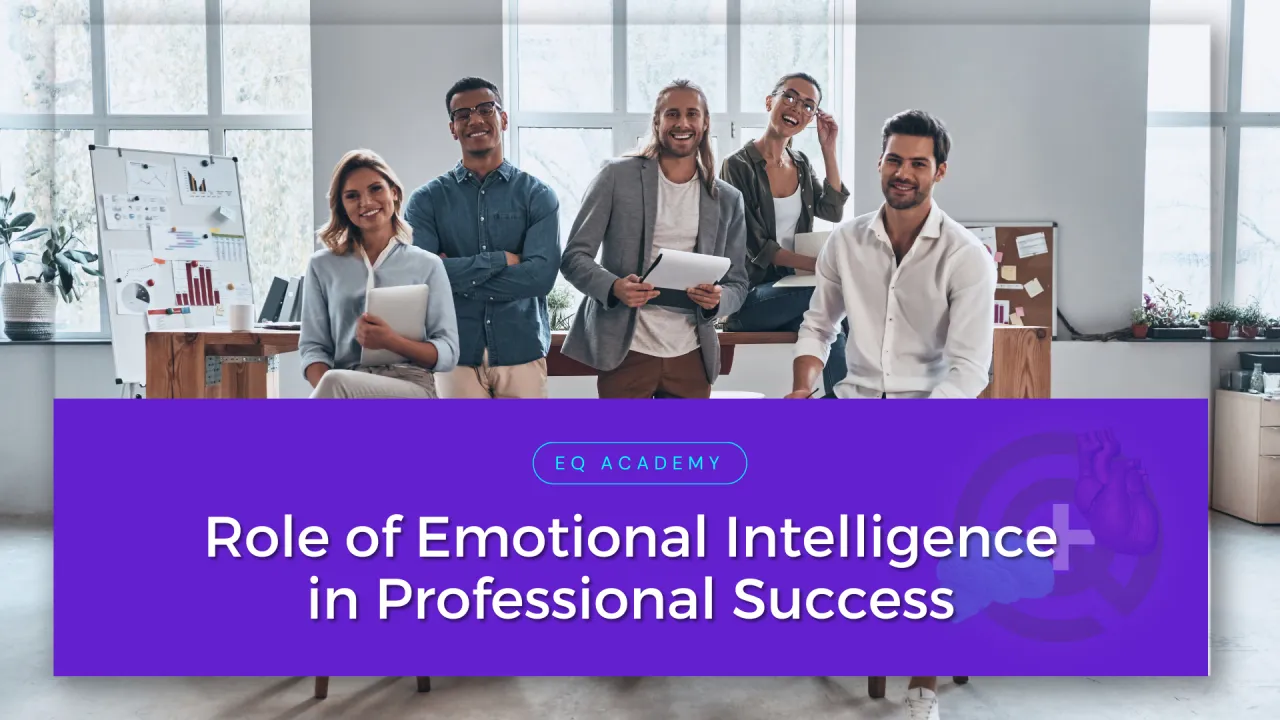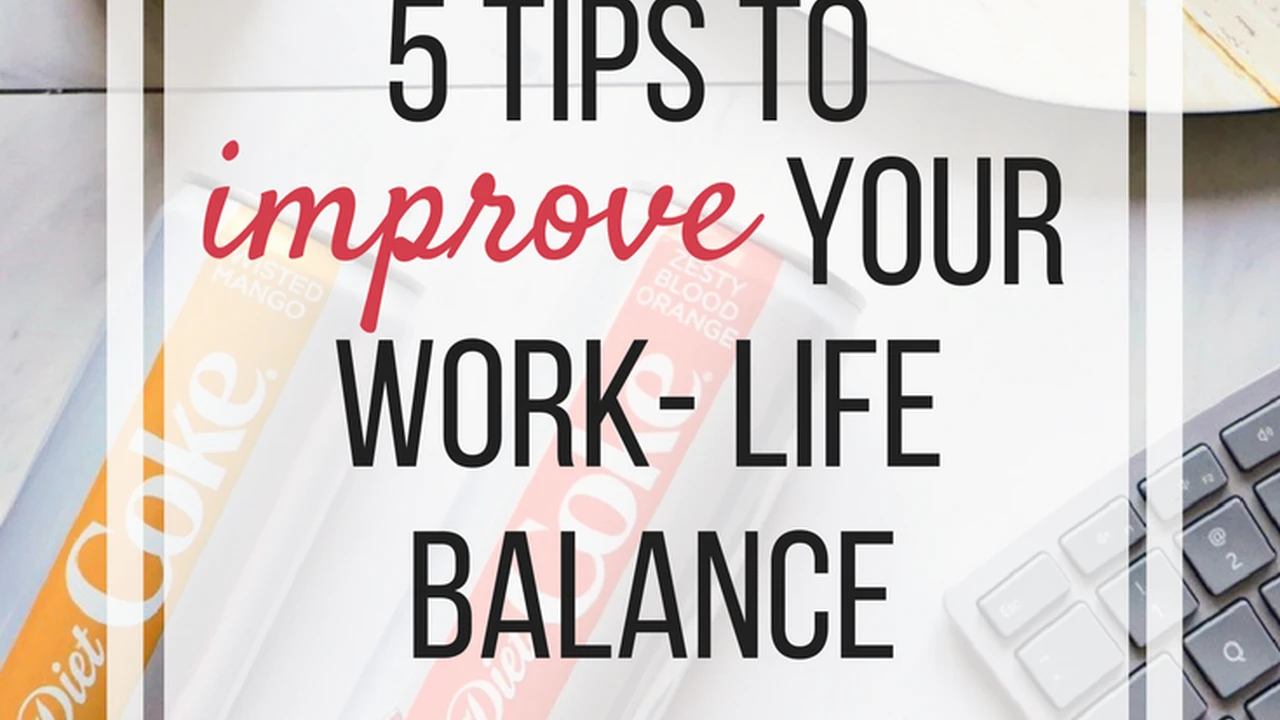The Role of Emotional Intelligence in Career Success
{ "article": [ { "title": "The Role of Emotional Intelligence in Career Success", "meta_description": "Explore the importance of emotional intelligence in navigating workplace dynamics and achieving career success.", "content": "Explore the importance of emotional intelligence in navigating workplace dynamics and achieving career success.\n\n

Hey there! Ever wondered what truly sets apart the most successful people in their careers? It's not always about raw IQ or technical skills. Often, it boils down to something a bit more nuanced: emotional intelligence (EQ). Think about it – how well do you understand your own feelings? How good are you at picking up on what others are feeling? And how do you use that understanding to navigate the complex world of work? That's emotional intelligence in a nutshell, and it's a game-changer for your career.
\n\nIn today's fast-paced and interconnected professional landscape, technical prowess alone isn't enough. Companies are increasingly recognizing that employees with high emotional intelligence are better collaborators, more effective leaders, and more resilient in the face of challenges. This isn't just a soft skill; it's a critical competency that can significantly impact your career trajectory, from landing that dream job to excelling in leadership roles and even starting your own successful venture.
\n\nUnderstanding Emotional Intelligence What is EQ and Why it Matters
\n\nSo, what exactly is emotional intelligence? It's the ability to understand, use, and manage your own emotions in positive ways to relieve stress, communicate effectively, empathize with others, overcome challenges, and defuse conflict. It's generally broken down into a few key components:
\n\n- \n
- Self-Awareness: This is about knowing your own emotions, strengths, weaknesses, values, and goals, and recognizing their impact on others. It's about understanding what makes you tick. \n
- Self-Regulation: This is your ability to manage your own emotions and impulses. It's about thinking before you act, staying calm under pressure, and adapting to change. \n
- Motivation: This isn't just about external rewards, but about being driven by internal factors like a desire to achieve, a passion for your work, and optimism even in the face of setbacks. \n
- Empathy: This is the ability to understand and share the feelings of another. It's about putting yourself in someone else's shoes and responding appropriately. \n
- Social Skills: This encompasses your ability to manage relationships, build networks, and find common ground. It's about effective communication, conflict resolution, and collaboration. \n
Why does this matter for your career? Well, imagine a project manager who can sense tension in a team meeting and address it before it escalates. Or a salesperson who can intuitively understand a client's unspoken needs. Or a leader who can inspire and motivate their team even during tough times. These are all examples of EQ in action, leading to better outcomes, stronger relationships, and ultimately, greater career success.
\n\nEQ in Action Navigating Workplace Dynamics and Team Collaboration
\n\nLet's get practical. How does emotional intelligence actually play out in your daily work life? It's everywhere! From how you handle feedback to how you lead a meeting, EQ is constantly at play. For instance, a high EQ individual can:
\n\n- \n
- Handle Conflict Constructively: Instead of getting defensive or aggressive, they can approach disagreements with a calm and open mind, seeking solutions rather than blame. \n
- Build Stronger Relationships: By understanding and empathizing with colleagues, they foster trust and rapport, leading to more effective teamwork. \n
- Communicate More Effectively: They can tailor their communication style to their audience, ensuring their message is received clearly and positively. \n
- Adapt to Change: In today's rapidly evolving workplaces, the ability to manage your own reactions to change and help others through it is invaluable. \n
- Give and Receive Feedback Gracefully: They can deliver constructive criticism without causing offense and receive feedback without taking it personally, using it for growth. \n
Think about a time you worked with someone who was brilliant technically but struggled with interpersonal skills. It can be frustrating, right? Now, imagine working with someone who might not be the absolute expert in every technical area but is a fantastic communicator, a great listener, and always knows how to motivate the team. Who would you rather have on your side for a challenging project? Often, it's the latter, because EQ facilitates smoother processes and better overall outcomes.
\n\nBoosting Your EQ Practical Tools and Resources for Self Improvement
\n\nThe good news is that emotional intelligence isn't fixed; it's a skill you can develop and improve over time. Just like you can learn a new software program or a foreign language, you can train your emotional muscles. Here are some practical tools and resources that can help you on your EQ journey:
\n\nJournaling for Self Awareness and Emotional Reflection
\n\nOne of the simplest yet most powerful tools for boosting self-awareness is journaling. Dedicate 10-15 minutes each day to write down your thoughts, feelings, and reactions to events. Don't censor yourself; just let it flow. This practice helps you identify patterns in your emotional responses, understand your triggers, and gain clarity on your values and motivations.
\n\nHow to use it: Keep a dedicated notebook or use a digital journaling app. Focus on questions like: \"What emotions did I feel today and why?\" \"How did I react to [specific event]? Was that reaction effective?\" \"What could I have done differently?\"
\n\nMindfulness and Meditation Apps for Emotional Regulation and Focus
\n\nMindfulness is the practice of being present and fully aware of the current moment, without judgment. It's incredibly effective for improving self-regulation and reducing stress. There are many excellent apps available that guide you through meditation and mindfulness exercises.
\n\n- \n
- Calm: This app offers guided meditations, sleep stories, breathing programs, and masterclasses on various topics like managing stress and building resilience. It's great for beginners and experienced meditators alike. \n
- Headspace: Similar to Calm, Headspace provides guided meditations, courses on specific topics (like anxiety or focus), and quick mindfulness exercises. Their animations make complex concepts easy to understand. \n
- Insight Timer: This app boasts a massive library of free guided meditations from thousands of teachers, covering a wide range of styles and durations. It also has a timer for unguided meditation. \n
Usage Scenario: Use these apps for a 5-10 minute guided meditation before starting your workday to set a calm tone, or during a break to re-center yourself when feeling overwhelmed. Many also offer short 'SOS' meditations for immediate stress relief.
\n\nComparison: Calm and Headspace are more structured with curated programs, often requiring a subscription (around $70/year for Calm, $69.99/year for Headspace after free trials). Insight Timer offers a vast free library, with optional paid features for advanced courses and offline access (around $60/year for premium).
\n\nFeedback Tools and 360 Degree Assessments for Social Awareness
\n\nTo truly understand your social skills and how others perceive you, you need feedback. While informal feedback from colleagues is valuable, structured 360-degree assessments can provide a comprehensive view.
\n\n- \n
- TalentSmart EQ-i 2.0: This is a widely recognized and scientifically validated assessment that measures your emotional intelligence across various competencies. It provides a detailed report and often comes with a coaching session. \n
- MHS EQ-i 2.0: Another leading assessment tool, often used by coaches and organizations for leadership development. It provides insights into your strengths and areas for development in EQ. \n
Usage Scenario: These assessments are typically administered by HR departments or external coaches. They involve you self-assessing your EQ, and then inviting colleagues, managers, and direct reports to provide anonymous feedback. The results highlight discrepancies between your self-perception and others' perceptions, offering clear areas for development.
\n\nComparison: Both TalentSmart and MHS offer robust, research-backed assessments. They are generally not available for individual purchase directly but are part of coaching programs or organizational development initiatives. The cost can vary widely depending on the provider and whether it includes coaching, but expect to pay anywhere from $200 to $1000+ for a full assessment and debrief.
\n\nBooks and Online Courses for Deep Dive Learning
\n\nFor a deeper understanding of emotional intelligence and practical strategies, there's a wealth of knowledge in books and online courses.
\n\n- \n
- Book: "Emotional Intelligence: Why It Can Matter More Than IQ" by Daniel Goleman: This is the foundational text that popularized the concept of EQ. It's a must-read for anyone serious about understanding the science and impact of emotional intelligence. \n
- Book: "Primal Leadership: Learning to Lead with Emotional Intelligence" by Daniel Goleman, Richard Boyatzis, and Annie McKee: This book focuses specifically on how EQ drives effective leadership and creates resonant workplaces. \n
- Online Course: Coursera's 'Leading with Emotional Intelligence' (Yale University): This course offers a comprehensive exploration of EQ, its components, and practical strategies for developing it in a leadership context. It's taught by experts and includes exercises and quizzes. \n
- Online Course: LinkedIn Learning's 'Developing Your Emotional Intelligence': This course provides practical tips and techniques for improving self-awareness, self-regulation, motivation, empathy, and social skills. It's often included with a LinkedIn Premium subscription. \n
Usage Scenario: Read these books to gain a theoretical foundation and practical insights. Enroll in online courses to get structured learning, practical exercises, and sometimes even peer interaction. Dedicate a specific time each week to engage with this material.
\n\nComparison: Books are a one-time purchase (typically $15-$25 for paperbacks, less for e-books). Online courses vary: Coursera courses can be audited for free or you can pay for a certificate (around $49-$79 for a single course, or a monthly subscription for specializations). LinkedIn Learning is usually part of a premium subscription ($29.99/month or $19.99/month annually).
\n\nCoaching and Mentorship for Personalized Guidance
\n\nSometimes, the most effective way to develop EQ is through personalized guidance. A good coach or mentor can provide tailored feedback, help you identify blind spots, and guide you through specific challenges.
\n\nUsage Scenario: Seek out a certified executive coach or a mentor who has strong emotional intelligence themselves. Discuss your career goals and areas where you want to improve your EQ. They can offer strategies, role-play scenarios, and hold you accountable for your development.
\n\nCost: Coaching can be a significant investment, ranging from $100 to $500+ per hour depending on the coach's experience and location. Mentorship, if informal, might be free, but formal mentorship programs or paid mentorship platforms exist.
\n\nThe Long Term Impact of High EQ Sustained Career Growth and Leadership
\n\nDeveloping your emotional intelligence isn't just about solving immediate workplace problems; it's about setting yourself up for long-term career success and leadership. Individuals with high EQ are more likely to:
\n\n- \n
- Be Promoted to Leadership Roles: Leaders need to inspire, motivate, and manage people, all of which require strong emotional intelligence. \n
- Navigate Career Transitions More Smoothly: They can better manage the stress and uncertainty of career changes and adapt to new environments. \n
- Build Resilient Careers: They are better equipped to handle setbacks, learn from failures, and bounce back stronger. \n
- Create Positive Work Environments: Their presence can elevate the mood and productivity of an entire team or organization. \n
- Achieve Greater Job Satisfaction: By understanding themselves and others, they can find roles and environments that truly align with their values and strengths. \n
Think of EQ as a foundational skill that amplifies all your other abilities. You might be a brilliant coder, but if you can't collaborate effectively or handle constructive criticism, your potential will be limited. However, if you combine that technical brilliance with strong emotional intelligence, you become an unstoppable force in your career.
\n\nSo, whether you're just starting out, looking to climb the corporate ladder, or even considering launching your own business, investing in your emotional intelligence is one of the smartest career moves you can make. It's a continuous journey of self-discovery and growth, but the rewards – in terms of career success, stronger relationships, and overall well-being – are absolutely worth it. Start small, be consistent, and watch your career accelerate!
" } ] }:max_bytes(150000):strip_icc()/277019-baked-pork-chops-with-cream-of-mushroom-soup-DDMFS-beauty-4x3-BG-7505-5762b731cf30447d9cbbbbbf387beafa.jpg)






